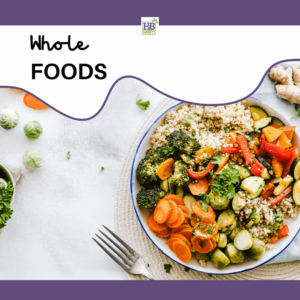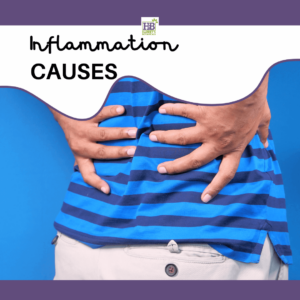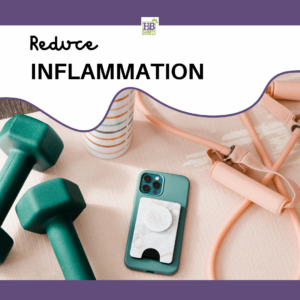What is Sugar? (Free Sugars)
This sweet-tasting condiment is a form of carbohydrate that the body converts to glucose. Today we consume way more added sugars than the generations did before us. At times it seems unavoidable as most processed foods contain sugar in one form or another. Simple sugars, also called monosaccharides, include glucose, fructose, and galactose. Free sugars have been removed from their naturally occurring source (rather than being eaten as natural parts of fruits, dairy products, and some vegetables and grains). This includes sugar that is added to food and drinks by food companies, cooks, or consumers. However, sugar is disguised on nutrition labels by use of approximately 56 different names; these include corn syrup, maltodextrin, corn starch, barley malt, high-fructose corn syrup, and so on. Hence the warning is to limit consuming processed fruit juice, soda, confectionery, and sweet goods because health risks come from free sugars. The World Health Organisation (WHO) recommends limiting “free sugars” to less than 10% of our total energy intake. This equates to around 12 teaspoons a day for an average adult.

Natural Sugars
Natural sugars occur in more complex forms in our foods. We find them in fruit as sucrose, fructose, and glucose and in dairy products, such as milk and cheese, as lactose. When we eat whole foods that are low in refined sugars, we gain more in terms of antioxidants, fiber, and minerals that may be lacking in processed foods and drinks. The steady absorption of natural sugar prevents blood sugar spikes.

Whole Foods
Whole foods refer to foods that are either unprocessed, such as fruit and vegetables, or minimally processed, such as whole grains. There is evidence that eating whole fruits (alone and in combination with vegetables) reduces your chances of dying from cancer, obesity, and heart disease. Consuming foods as nature intended is best for optimum nutrition and maintaining a healthy lifestyle. Natural sugar has not been linked to inflammation. In fact, many foods containing natural sugars, such as fruits and vegetables, may be anti-inflammatory.

What Causes Inflammation?
Inflammation is when the immune system responds to a stimulus that is viewed as foreign or toxic to your body. It is a natural response to your body fighting off or protecting you from invaders such as bacteria, viruses, immune reactions, or physical impact causing pain. Once your body detects a threat, your immune system then has to attack it and get rid of it and dismantle it or neutralize it. The process of dealing with this foreign threat creates inflammation. For injuries, the inflammatory response is different which may cause more blood flow, swelling, or less mobility in the affected area.

What is the link between Sugar and Inflammation?
Consuming too many inflammatory foods may cause chronic low-grade inflammation. This can cause serious health problems, such as heart disease, diabetes, cancer, and allergies. Many human studies confirm the link between added sugar and higher inflammatory markers. For example, drinking sugary drinks such as a can of soda a day can spike inflammation levels and leads to an increase in inflammatory markers, insulin resistance, LDL cholesterol, increased uric acid and weight gain. Added (free) sugar, which is removed from its original source and added to foods and drinks, is associated with inflammation.

Consuming excess added sugar and refined carbohydrates causes several changes in the body:
● Excess production of AGEs – excess Advanced glycation end products (AGEs) lead to oxidative stress and inflammation
● Increased gut permeability – bacteria, toxins, and undigested food particles can more easily move out of the gut and into the bloodstream, which may lead to inflammation
● Higher “bad” LDL cholesterol – is associated with higher levels of C-reactive protein (CRP), a marker of inflammation
● Weight gain – added sugar and excess refined carbs may lead to excess body fat due to insulin resistance.
Over time, excess added sugar consumption may lead to the formation of chronic inflammation that can trigger your immune system to attack healthy tissue and organs in your body. When left untreated, prolonged chronic inflammation can increase your risk for diseases like diabetes, heart disease, cancer, and rheumatoid arthritis. A high intake of added sugar and refined carbs has also been linked to the development of other diseases, such as liver disease, inflammatory bowel disease, mental decline, and non-alcoholic fatty liver disease.
What Happens When You Stop Consuming Free/Added Sugars?
1. Loss of appetite for sugar – every time you consume sugar, a hormone is produced that pushes the sugars down, causing a low blood sugar situation that causes you to crave sugar
2. Less hunger – giving up sugar can help stabilize blood sugars
3. Less fatigue – especially after eating a meal due to stabilized blood sugars
4. Lose excess water and fat – for the first week, you may lose a lot of excess water and more fat
5. Enhanced mood and improved cognitive function – more focus and concentration
6. Less inflammation in the arteries – helps prevent risks of stroke and heart disease
7. Skin looks better – glowing skin with less acne
8. Less stiffness – less inflammation and less pain
9. Build new enzymes to run the body on fat fuel and grow brain cells
10. Clean out a fatty liver and better kidney function
Inflammation is caused by a combination of many things. Added sugars may contribute to their severity and occurrence in our bodies.
The following tips may help reduce inflammation:
● Limiting processed foods and drinks
● Reading food labels for those hidden sugars
● Consuming whole-grain carbs eg. oats, brown rice, quinoa and barley
● Consuming more fruits and vegetables which are rich in anti-inflammatories
● Consuming lots of antioxidant-rich foods eg. nuts, seeds, avocados, oily fish and olive oil
● Staying active with regular physical activity and movement
● Manage stress levels through relaxation techniques and rest.












